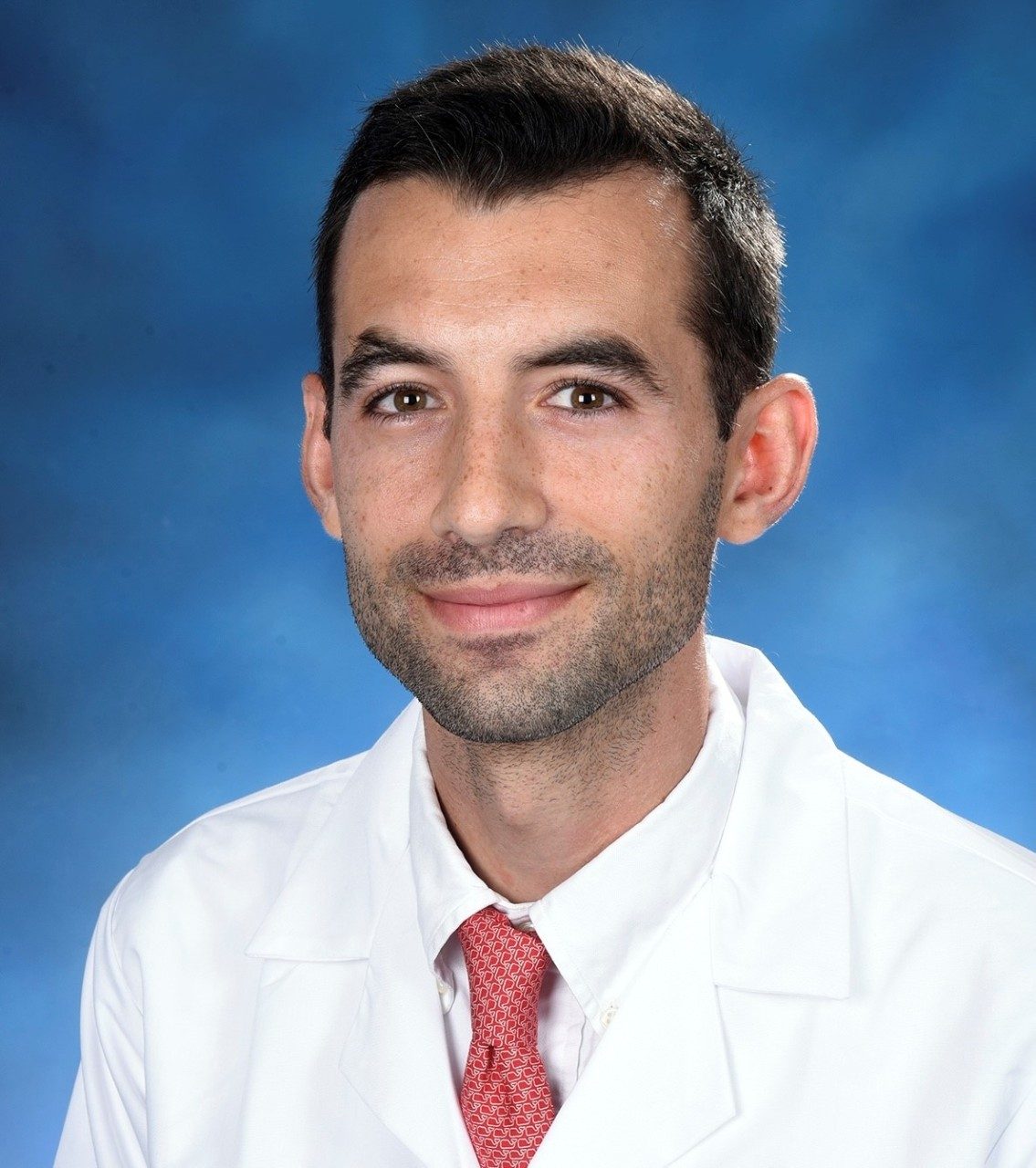Interventional Pulmonology Fellowship
The MD Anderson Interventional Pulmonology fellowship is a one-year program that provides a comprehensive educational experience to elevate the knowledge and skills of interventional pulmonologists, positioning them to become leaders in the field.
Our fellows train within MD Anderson’s department of Pulmonary Medicine, which consists of a group of physicians and scientists who provide complete consultative evaluation and management for patients with pulmonary disease associated with cancer, critically ill patients or the workup of undiagnosed lung abnormalities.
Through our program, trainees will advance their understanding of the anatomy and physiology of the airways, mediastinum, lung and pleural space, and enhance their procedural training. Graduates also will reinforce the foundation learned during their training in pulmonary and critical care medicine.
Educational experiences are offered in both inpatient and outpatient settings and are delivered through didactics, consultation, multidisciplinary conferences, case-based/patient-based discussions, and research.
Our fellowship program is accredited by the American Association for Bronchology and Interventional Pulmonology (AABIP)/Association of Interventional Pulmonary Program Directors (AIPPD) and is accreditation from the Accreditation Council for Graduate Medical Education (ACGME).
Letter from our Program Director

Professor
On behalf of the Interventional Pulmonology Fellowship Program at The University of Texas MD Anderson Cancer Center, I am delighted to extend a warm welcome to you. As the Program Director, it is my privilege to introduce you to our fellowship program. Our goal is to enhance patient care by training exceptional interventional pulmonologists through a rigorous and comprehensive educational experience. We aim to advance the field by fostering innovation, promoting cutting-edge research, and providing the highest quality patient care.
At MD Anderson, we take great pride in our commitment to offering comprehensive training that equips fellows with the knowledge, skills, and experience necessary to become leaders in Interventional Pulmonology. Our program offers a challenging yet rewarding one-year curriculum that integrates clinical care, research, and scholarly activities.
Our program is dedicated to developing skilled clinicians, compassionate advocates, and thoughtful researchers who are committed to improving the lives of patients with complex respiratory diseases. We strive to nurture a diverse and inclusive environment where fellows can excel, contribute to medical knowledge, and serve the community with the highest level of professional integrity and excellence.
We focus on clinical excellence, research proficiency, education and training, innovation and development, professional growth and leadership, and diversity and inclusion. Fellows are actively involved in every aspect of patient care, from diagnosing and managing pulmonary diseases to the latest advancements in cancer treatment, under the guidance of our experienced faculty.
As a fellow in our program, you will function as a key member of the Interventional Pulmonology team, which includes an IP faculty, an advanced practice provider and occasionally a Pulmonary and Critical Care Medicine fellow. Under the guidance of supervising faculty, you will be responsible for evaluating all patients on the Interventional Pulmonology service. To hone your skills as an educator, you will also provide direct supervision to Pulmonary and Critical Care Medicine fellows who may be rotating on the service.
I invite you to explore all that our Interventional Pulmonology Fellowship Program has to offer and consider joining our dynamic and passionate team of clinicians, researchers, and educators. Whether your goal is to pursue a career in academic medicine, clinical practice, or research, we are committed to providing you with the training and support you need to achieve your aspirations and make a meaningful impact in the lives of patients.
Thank you for considering the Interventional Pulmonology Fellowship Program at MD Anderson. We look forward to welcoming you to our community and embarking on this transformative journey together.
Warm regards,
Georgie A. Eapen, M.D.
Program Director
Interventional Pulmonology Fellowship Program
The University of Texas MD Anderson Cancer Center
Meet our Current Fellows

Saad Farooq, M. D. earned his medical degree at Aga Khan University from Karachi, Pakistan. He completed his residency at MedStar/Georgetown Washington Hospital Center in Washington, DC.

Anthony Rowe M.D, earned his medical degree from The George Washington University School Of Medicine. He completed his residency at MedStar Georgetown University Hospital.
Meet our Alumni
2020-2021
|
Moiz Salahuddin, M.D.
|
Aga Khan University, Karachi
|
2020-2021
|
Julie Lin, M.D.
|
UT MD Anderson-West Houston
|
2021-2022
|
Alberto Goizueta, M.D.
|
Tampa General Hospital
|
2021-2022
|
Christopher Chang, M.D.
|
VA Portland Health Care
|
2022-2023
|
Sami Bashour, M.D.
|
Baylor College of Medicine
|
2022-2023
|
Asad Khan, M.D.
|
Mississippi
|
2023-2024
|
Bharat Bhandari, M.D.
|
Aurora St. Luke Hospital
|
2023-2024
|
Armas Villalba, M.D.
|
Methodist Hospital-San Antonio
|
2024-2025
|
Joshua M. Boster, M. D. | Walter Reed Army Medical Center |
2024-2025
|
Stephen M. Goertzen, D.O. | Brooke Army Medical Center (BAMC) |
Contact Information

Kandace Barnes, MBA
Education Program Coordinator
Pulmonary Medicine
Email: kbarnes1@mdanderson.org
Pulmonary Medicine
Learn more about the Pulmonary Medicine department and its achievements.
MD Anderson Cancer Center is committed to encouraging good health and staying true to our mission to end cancer. If you are applying for a GME fellowship or residency program starting on or after July 1, 2016, please be advised that MD Anderson will have instituted a tobacco-free hiring process as part of its efforts to achieve these goals. If you are offered an appointment, you will be subject to a Pre-Employment Drug Screen for tobacco compounds in compliance with applicable state laws. If you do not pass the urine drug screening which includes testing for tobacco compounds, you CANNOT be appointed at MD Anderson. Should you fail to meet this contingency, MD Anderson will withdraw your offer of appointment for the academic year. You may reapply for the following academic year, but there are no guarantees that you will be offered a position as many of our programs are already filled for several years out.
Our Labs
Learn more about our faculty and research taking place in our labs.
Conferences
View conferences available for continuing education credit.
